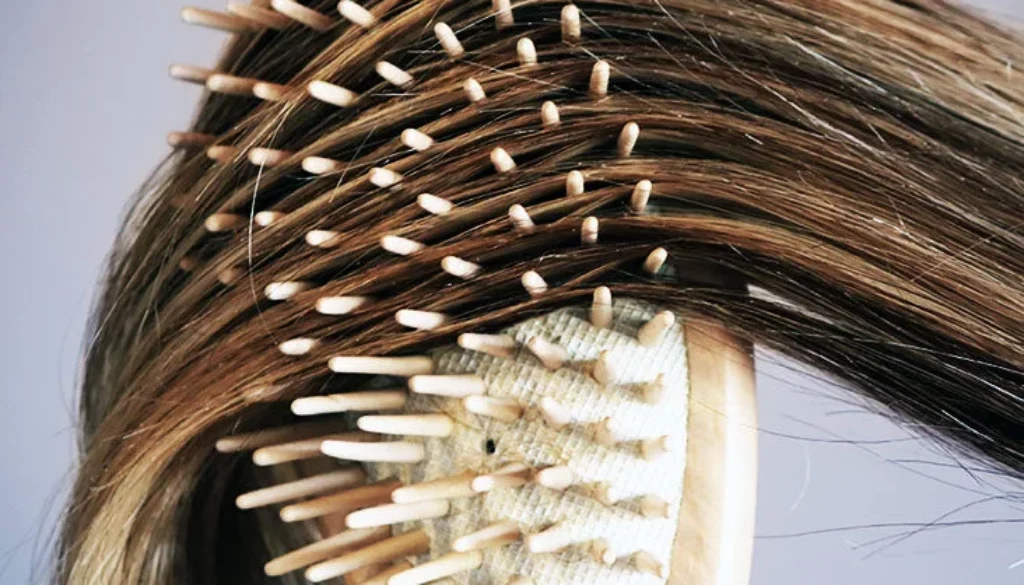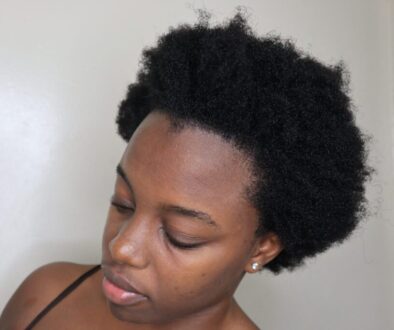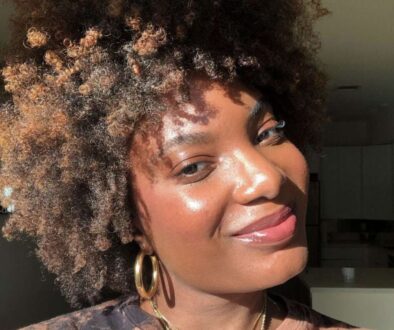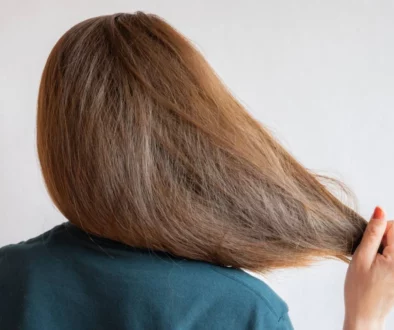The Role of Vitamins in Promoting Hair Health
The role of vitamins in promoting hair health cannot be understated, as they play a crucial role in supporting the growth and strength of hair. Hair is not just an aesthetic feature but also an important indicator of overall health. Many factors contribute to hair health, including genetics, age, and lifestyle choices. However, one aspect that shouldn’t be overlooked is the role of vitamins in promoting hair health. In this article, we will explore the connection between vitamins and hair growth, covering the benefits of specific vitamins, dietary sources, and supplementation options, and debunking common myths surrounding vitamins and hair health.
The introduction will emphasize the importance of healthy hair and highlight the role of vitamins in maintaining and promoting hair health. It will engage the reader by mentioning common hair problems and how vitamins can address those issues.
Understanding Hair Health
Hair health is determined by various factors, including genetics, age, and lifestyle choices. To better understand hair health, it is important to grasp the structure of hair and its growth cycle.
The structure of hair consists of three main layers: the medulla, cortex, and cuticle. The medulla is the innermost layer, followed by the cortex, which is responsible for the hair’s strength, color, and texture. The outermost layer is the cuticle, which acts as a protective barrier for the hair shaft.
Hair growth occurs in cycles, consisting of three phases: anagen, catagen, and telogen. During the anagen phase, hair follicles actively produce new hair cells, resulting in hair growth. This phase can last anywhere from two to six years and determines the length of the hair. The catagen phase is a transitional phase that lasts for a few weeks, during which the hair follicles shrink and detach from the blood supply, preparing for the next phase. The telogen phase, also known as the resting phase, lasts around three months. During this phase, the hair follicles are inactive, and the old hair eventually falls out to make room for new hair growth.
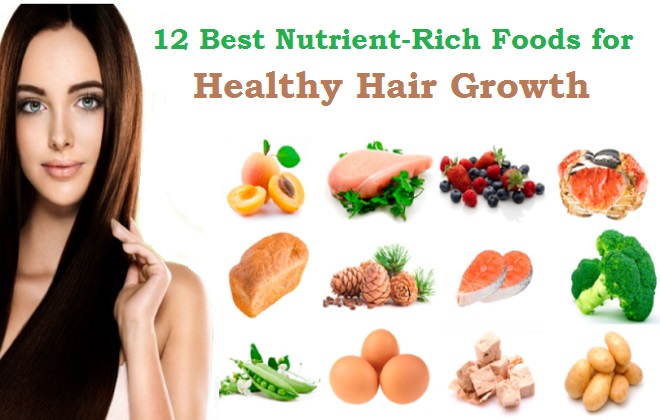
Genetics plays a significant role in determining hair health. The genes inherited from parents can influence hair thickness, texture, and growth patterns. Some individuals may have a genetic predisposition for certain hair conditions, such as pattern baldness or premature graying. However, it’s important to note that genetics is not the sole determining factor in hair health, and lifestyle choices can also impact the condition of the hair.
Age is another factor that affects hair health. As individuals age, the rate of hair growth can slow down, and the hair strands may become thinner and more prone to breakage. Hormonal changes during different life stages, such as puberty, pregnancy, and menopause, can also impact hair health. Additionally, age-related factors like decreased blood circulation and reduced production of natural oils by the scalp can affect the overall health and appearance of the hair.
Lifestyle choices can significantly impact hair health. Factors such as diet, stress levels, and hair care practices play a crucial role in maintaining healthy hair. A balanced diet rich in essential nutrients, including vitamins, minerals, and proteins, provides the necessary building blocks for hair strength and growth. Conversely, poor nutrition can lead to hair loss, dullness, and brittleness.
Furthermore, excessive stress can contribute to hair loss and other hair-related issues. Chronic stress can disrupt the hair growth cycle and lead to increased shedding. Adopting stress-management techniques and maintaining a healthy work-life balance can help promote hair health.
Vitamin A and Hair Health
Vitamin A is an essential nutrient that plays a vital role in maintaining hair health and promoting hair growth. Let’s delve into the benefits of vitamin A for hair, food sources rich in vitamin A, recommended daily intake, and potential risks associated with excessive consumption.
Benefits of Vitamin A for Hair Growth and Maintenance
Vitamin A is crucial for the production of sebum, the natural oil that moisturizes the scalp and keeps hair follicles healthy. This prevents the hair from becoming dry and brittle, reducing the risk of breakage and promoting overall hair growth. Additionally, vitamin A aids in the formation of keratin, a protein that makes up the structure of hair, resulting in stronger and more resilient strands.
Food Sources Rich in Vitamin A
Including foods rich in vitamin A in your diet is an effective way to ensure an adequate intake of this nutrient. Excellent sources of vitamin A include:
- Sweet potatoes: These orange-fleshed root vegetables are a powerhouse of vitamin A, providing more than double the recommended daily intake in just one medium-sized sweet potato.
- Carrots: Carrots are known for their high vitamin A content, and they can be enjoyed raw or cooked in various dishes.
- Spinach: This leafy green vegetable contains not only vitamin A but also other beneficial nutrients for hair health, such as iron and folate.
- Kale: Another leafy green rich in vitamin A, kale can be incorporated in salads, smoothies, or sautéed as a nutritious side dish.
- Mangoes: These tropical fruits are not only delicious but also a great source of vitamin A, providing a sweet and juicy way to boost your intake.
Apart from these, other sources of vitamin A include liver, eggs, dairy products, and fortified foods.
Recommended Daily Intake and Potential Risks
The recommended daily intake of vitamin A varies depending on age and gender. For adult men, the recommended intake is approximately 900 micrograms (mcg) of vitamin A retinol activity equivalents (RAE), while for adult women, it is 700 mcg RAE.
While vitamin A is essential for hair health, consuming excessive amounts can have adverse effects. High doses of vitamin A, especially from supplements and animal-based sources, can lead to a condition called hypervitaminosis A. Symptoms may include hair loss, dry skin, nausea, and even more severe health issues. It is crucial to avoid self-medicating with high-dose vitamin A supplements and focus on obtaining it from natural food sources instead.
Supplementation should only be considered under the guidance of a healthcare professional, especially for individuals with specific deficiencies or special conditions, as excessive intake can pose risks to overall health.
B Vitamins and Hair Health
B vitamins, including Biotin, Niacin, and B12, are essential for promoting hair growth and maintaining healthy hair. Let’s explore the role of B vitamins in hair health, their individual benefits, food sources, and supplementation options.
Role of B Vitamins in Promoting Hair Growth and Strength
B vitamins are crucial for various functions in the body, including hair growth and strength. They play a vital role in the production of red blood cells, which carry oxygen and nutrients to the hair follicles, promoting healthy growth. Additionally, B vitamins help in the metabolism of amino acids, the building blocks of proteins, which are essential for hair structure and strength.
Individual Benefits of B Vitamins for Hair Health
- Biotin (B7): Biotin is often referred to as the “hair growth” vitamin. It supports the production of keratin, the protein that makes up the hair structure. Biotin also aids in the metabolism of fatty acids and carbohydrates, providing energy to hair cells.
- Niacin (B3): Niacin improves blood circulation to the scalp, ensuring a healthy supply of oxygen and nutrients to the hair follicles. It helps maintain the overall health of the scalp, promoting hair growth and reducing hair loss.
- B12 (Cobalamin): Vitamin B12 is essential for the production of red blood cells, which transport oxygen to the hair follicles. Adequate levels of B12 contribute to healthy hair growth and may help prevent hair loss.
Food Sources and Supplementation Options
Including foods rich in B vitamins in your diet is essential to ensure sufficient intake. Here are some excellent food sources for each of the B vitamins:
- Biotin: Eggs, nuts, seeds, liver, salmon, and sweet potatoes.
- Niacin: Meat, fish, legumes, mushrooms, and whole grains.
- B12: Shellfish, fish, poultry, dairy products, and fortified cereals.
In some cases, supplementation may be necessary, especially for individuals with specific deficiencies or dietary restrictions. However, it is important to consult with a healthcare professional before starting any supplementation regimen to determine the appropriate dosage and ensure it is suitable for your individual needs. They can conduct tests to identify potential deficiencies and guide you on the right supplementation approach.
Vitamin C and Hair Health
Vitamin C, also known as ascorbic acid, plays an important role in maintaining hair health. Let’s explore the benefits of vitamin C for hair, food sources rich in vitamin C, and its recommended daily intake.
Benefits of Vitamin C for Hair Health
Vitamin C is crucial for the production of collagen, a protein that helps in the growth and strength of hair. Collagen provides structure to the hair follicles, supports the development of healthy hair strands, and maintains the integrity of hair cells. Additionally, vitamin C is an antioxidant that protects hair follicles from damage caused by free radicals.
Food Sources Rich in Vitamin C
Including foods rich in vitamin C in your diet is an effective way to ensure an adequate intake of this nutrient. Some excellent sources of vitamin C include:
- Citrus fruits: Oranges, lemons, grapefruits, and other citrus fruits are well-known for their high vitamin C content.
- Berries: Strawberries, blueberries, raspberries, and blackberries are not only delicious but also rich in vitamin C.
- Bell peppers: Red, yellow, and green bell peppers are excellent sources of vitamin C.
- Leafy green vegetables: Spinach, kale, and broccoli are nutrient-dense vegetables packed with vitamin C.
- Kiwi: This small, fuzzy fruit is a great source of vitamin C.
These are just a few examples, and there are many other fruits and vegetables that contain vitamin C.

Recommended Daily Intake
The recommended daily intake of vitamin C varies depending on age and gender. For adults, the recommended intake is approximately 75 to 90 milligrams per day. However, certain conditions, such as pregnancy and breastfeeding, may require higher levels of vitamin C intake. It is best to consult with a healthcare professional to determine the appropriate dosage for your specific needs.
Vitamin D and Hair Health
Vitamin D, also known as the “sunshine vitamin,” is not only crucial for bone health but also plays a role in hair health. Let’s explore the connection between vitamin D and hair health, the benefits of sufficient vitamin D levels for hair growth, and its dietary sources.
Research suggests that vitamin D deficiency may be linked to various hair problems, including hair loss and thinning. Vitamin D receptors are present in hair follicles, and it is believed that adequate vitamin D levels are necessary for the normal growth and cycling of hair follicles. In cases of vitamin D deficiency, hair growth may be impacted, leading to hair loss or slower hair regrowth.
Benefits of Sufficient Vitamin D Levels for Hair Growth
Sufficient levels of vitamin D are important for maintaining the hair growth cycle and promoting healthy hair follicles. Vitamin D helps stimulate hair follicles, encourages the growth of new hair strands, and may even help prevent hair loss caused by conditions like alopecia areata. It also plays a role in reducing inflammation on the scalp, promoting a healthy environment for hair growth.
Dietary Sources and Sunlight Exposure
There are limited dietary sources of vitamin D, as very few foods naturally contain significant amounts. However, some dietary sources include fatty fish (such as salmon, mackerel, and sardines), egg yolks, and fortified foods like milk, cereals, and orange juice.
Additionally, our bodies can produce vitamin D when our bare skin is exposed to sunlight. Spending time outdoors, particularly during peak sunlight hours, can help our bodies produce vitamin D naturally. However, it is important to balance sun exposure with proper sun protection practices to minimize the risk of skin damage.
If you suspect a vitamin D deficiency, it is advisable to have your levels checked by a healthcare professional. They can guide you on the appropriate steps to take, which may include dietary changes, sensible sunlight exposure, or supplementation if needed.
Vitamin E and Hair Health
Vitamin E is a fat-soluble antioxidant that plays a significant role in maintaining healthy hair. Let’s explore the benefits of vitamin E for hair health, food sources rich in vitamin E, and its recommended daily intake.
Benefits of Vitamin E for Hair Health
Vitamin E contributes to hair health by promoting blood circulation to the scalp, strengthening the hair follicles, and protecting the hair from oxidative stress caused by free radicals. It can help reduce scalp inflammation and improve the conditions for healthy hair growth. Additionally, vitamin E has moisturizing properties that can reduce dryness and enhance the overall appearance of hair.
Food Sources Rich in Vitamin E
Including foods rich in vitamin E in your diet can help ensure adequate intake of this nutrient. Some excellent sources of vitamin E include:
- Nuts and seeds: Almonds, sunflower seeds, hazelnuts, and peanuts are great sources of vitamin E.
- Spinach: This leafy green vegetable contains vitamin E along with other beneficial nutrients for hair health.
- Avocado: Avocado is not only delicious but also a good source of vitamin E.
- Oils: Vegetable oils such as wheat germ oil, sunflower oil, and almond oil are rich in vitamin E.
These are just a few examples, and there are other foods, such as broccoli, kiwi, and fortified cereals, that also contain vitamin E.
Recommended Daily Intake
The recommended daily intake of vitamin E varies depending on age and gender. For adults, the recommended intake is approximately 15 milligrams per day. However, it is important to note that excessive intake of vitamin E from supplements may have potential risks, and it is best to consult with a healthcare professional before starting any supplementation regimen.
Other Essential Vitamins for Hair Health
In addition to vitamin A, B vitamins, vitamin C, vitamin D, and vitamin E, there are several other essential vitamins and minerals that play a crucial role in maintaining healthy hair. Let’s explore the importance of folate, iron, and zinc for hair growth and thickness, their dietary sources, supplementation options, and the scientific evidence supporting their role in hair health.
Folate (Vitamin B9)
Folate, also known as vitamin B9, is important for overall cell division, including the cells responsible for hair growth. It helps in the production of DNA and RNA, which are essential for the formation of new cells and tissues.
Iron
Iron is vital for the transportation of oxygen to the hair follicles and scalp. It helps in the production of hemoglobin, a component of red blood cells that carries oxygen. Insufficient iron levels can lead to poor oxygen supply to the hair follicles, resulting in hair loss and thinning.
Zinc
Zinc plays a role in maintaining the health of the hair follicles and oil glands on the scalp. It is involved in the production of proteins and DNA, which are necessary for hair growth. Zinc also helps in regulating hormone levels, which can impact the health and growth of hair.
Dietary Sources and Supplementation Options
Including foods rich in folate, iron, and zinc in your diet is important for ensuring sufficient intake of these nutrients. Here are some examples:
- Folate: Dark leafy greens (spinach, kale), legumes (lentils, chickpeas), asparagus, and citrus fruits (oranges).
- Iron: Red meat, poultry, seafood (oysters, clams, mussels), beans, lentils, spinach, and fortified cereals.
- Zinc: Shellfish (oysters, crab, lobster), beef, lamb, pumpkin seeds, nuts, and legumes.
Supplementation options may be considered under the guidance of a healthcare professional, especially for individuals with deficiencies or specific dietary needs. It is important to work with a healthcare professional to determine the appropriate dosage and form of supplementation for your individual needs.
The Science Behind Vitamins and Hair Health
Multiple research studies have explored the role of vitamins in promoting hair growth and overall hair health. Here are a few key studies and the biochemical processes related to hair growth:
- A study published in the Archives of Dermatology found that a combination of biotin, zinc, and a topical clobetasol propionate solution improved hair regrowth in individuals with alopecia areata, a condition characterized by patchy hair loss.
- Another study published in the International Journal of Trichology investigated the effects of iron supplementation on hair regrowth in women with iron deficiency anemia and found significant improvement in hair density and thickness after iron treatment.
- Biochemical processes related to hair growth involve the stimulation of hair follicles, the production of keratin (the protein building block of hair), and the regulation of cyclic hair growth phases. Vitamins and minerals support these processes by providing essential nutrients, promoting blood flow to the scalp, and preventing damage from oxidative stress.
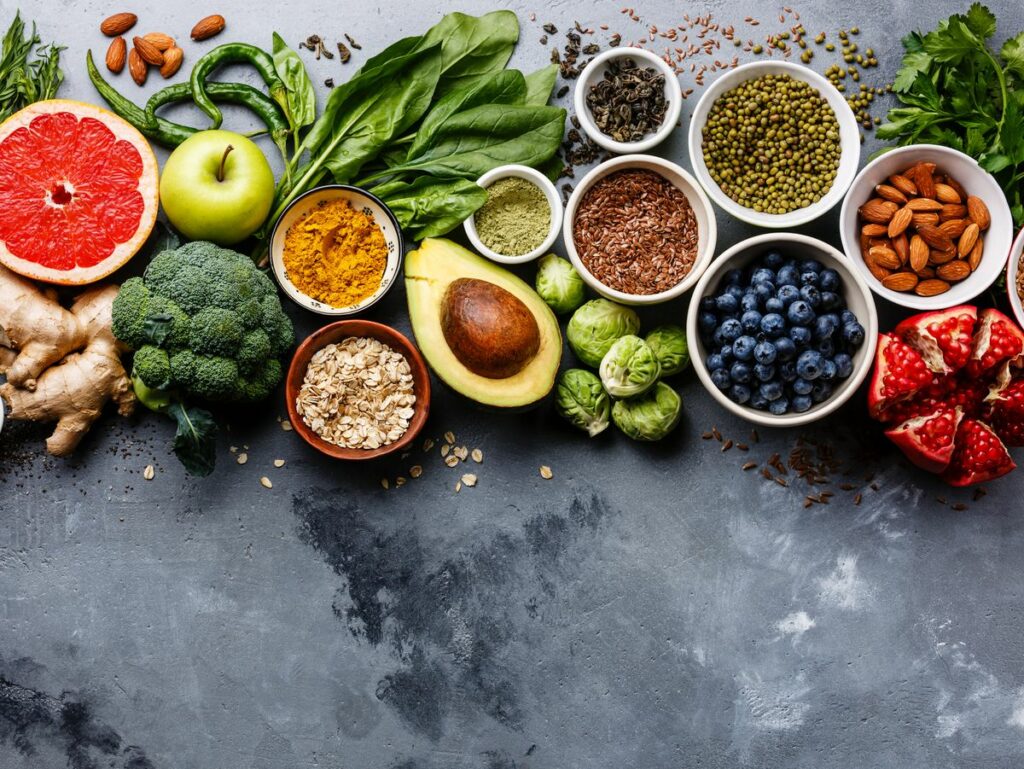
Conclusion
The conclusion will summarize the key points discussed in the article and reiterate the significance of vitamins in promoting hair health. It will encourage readers to take a holistic approach to hair care by focusing on a nutrient-rich diet, adopting healthy habits, and seeking professional advice when needed.
Also Read:
